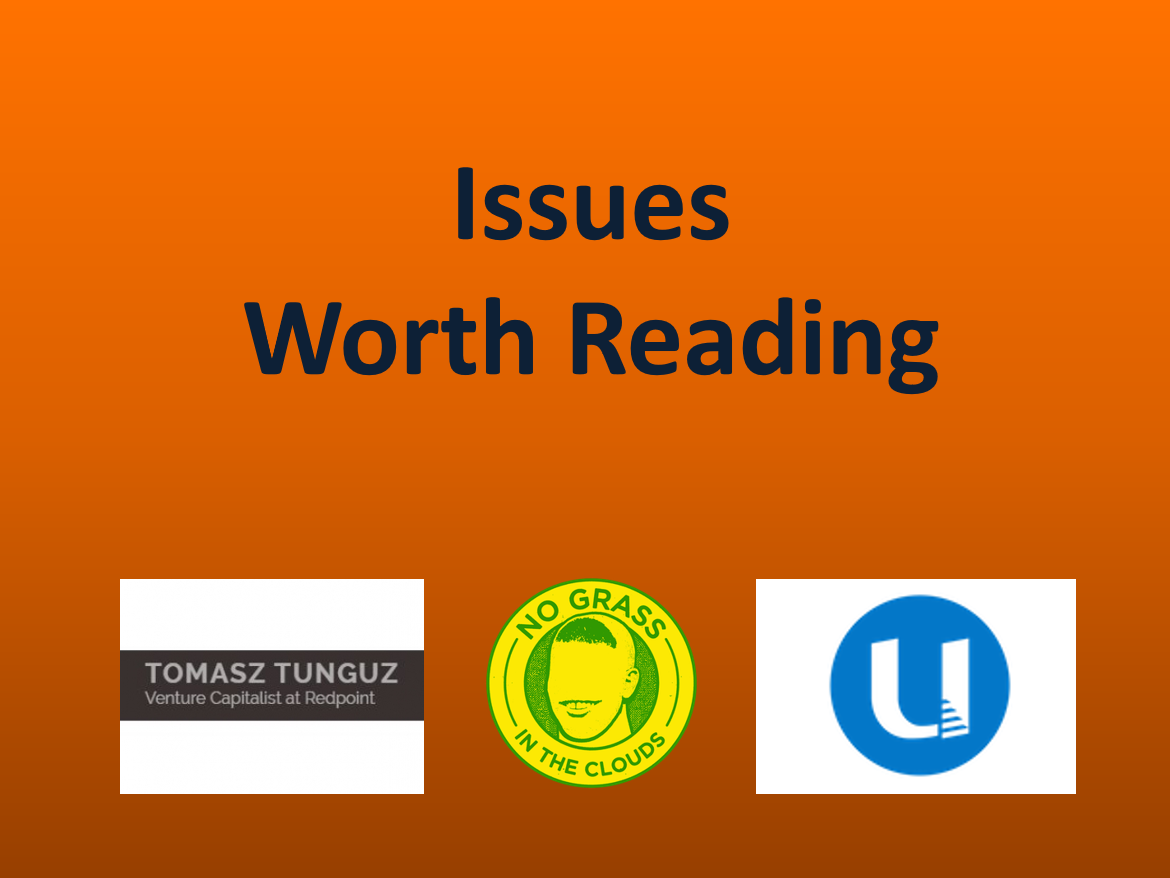1/15/21 Recommended Issues: Pigeons & Soccer Players, Cascading Information, Apple

Good day!
Each week we handpick newsletter issues by independent writers you may have missed that provide new or unique perspectives.
If you read last week's and would like to subscribe or leave a review of any of the highlighted newsletters, you can do that here: Empty Your Cup, Off the Chain/The Pomp and Data is Plural. The narrowSCALE community really appreciates it!
Also, if someone forwarded you this and you'd like to subscribe, you can do that here -- thanks!)
Here's what's worth reading this week...enjoy!
INFORMATION CASCADES & RATIONALITY
Information Cascades - How Many Rational People Can Make Logical Decisions and Yet Still Create a Bubble in Tomasz Tunguz on Jan 8
In this short issue, Tomasz explains the term “information cascades”. It’s basically how people that are behaving rationally, with increased information/data, can still create bubbles of beliefs -- and that dissent, or going against what’s “rational” is the only way to break these bubbles. It’s an intriguing read because it may make you question rationality, the "rational interpretation” of data/information, your own behavior/decisions, and “agreement" differently than before. (609 words; 2.25 minutes) Read it…
APPLE DECLARES NO MORE TYPEWRITERS
1-1-81 in Understandably by Bill Murphy Jr. on Jan 13
This issue tells an interesting story about the importance (and sometimes difficulty) of “eating your own dog food”. The tale is of 1981 when the CEO of Apple (who was NOT actually Steve Jobs at that time) mandated the removal of all typewriters, effectively forcing the adoption of computers. If computers were good enough for Apple’s customers, computers should be good enough for Apple employees, so let employees lead the way and prove it. It’s worth a read 1) because it’s just an fascinating piece of history from a now-world-famous customer-centric company and 2) because it should make you think of ways you or your employees/coworkers can use your own products -- and the impact it can have on everyone if you do. (1268 words; 4.5 minutes) Read it...
PIGEON AND SOCCER PLAYER SIMILARITIES
How a Flock of Pigeons Explains Manchester City's Win Over Chelsea in No Grass in The Clouds by Ryan O'Hanlon on Jan 5
Now, how often do you hear about research on animals being applied to professional athletics to better predict or understand their playing behavior? Arguably quite infrequently. Ryan delves into some pretty unique research that leverages pigeon flock studies (specifically the hierarchical group dynamics of pigeons) to try to understand how individuals influence systems and how individuals are influenced by their systems-- in the game of soccer (or to everyone in else the world: football). It’s fascinating to learn how they analyze the football teams through a lens of coordinated movements and which types of teams are more coordinated, which less, etc. You don’t need to be a huge football fanatic to find this issue worth reading because your brain will also start to ponder other sports too, and pique your curiosity about what might get studied next. (1831 words; 6.5 minutes) Read it...
Some interesting facts for the week:
- Developing and launching the iPod in 2001 took just 41 weeks, from the very first meeting (no team, no prototype, no design) to iPods shipping to customers. Now there's some speed! (Recomendo 1/3/21)
- In Warsaw’s Gruba Kaśka water plant there are eight clams with sensors attached to their shells. If the clams close because they don’t like the taste of the water, the city’s supply is automatically shut off. Crazy? Effective? I'm super curious. (Recomendo 1/3/21)
- A really useful, but non-obvious, shortcut to search Google calendar for a particular date is simply to hit the letter G while on the calendar page. Instead of scrolling back month by month, you hit < g > and then enter the date you want. (Recomendo 1/10/21)
- Researchers from several universities built a basic AI model that can detect whether construction site workers are wearing COVID masks or not... Seems like that has some interesting implications on workplace (or other?) surveillance. (Import AI 1/11/21)
- The “world’s most expensive home,” a $350 million mansion, is apparently ready to go on the market in Los Angeles. At 105,000 square feet of living space, everything about it seems unfathomable. Oh and there are 5 swimming pools. (Understandably 1/13/21)
I hope you gained some new perspectives or something water-cooler-discussion worthy!
And if you're on the hunt for any specific newsletters to read, feel free to email me or poke around in narrowSCALE.
Also, if you're not subscribed to THIS newsletter yet, please subscribe here :)!
Best,
~Jessica